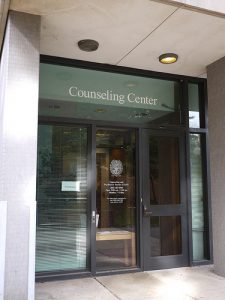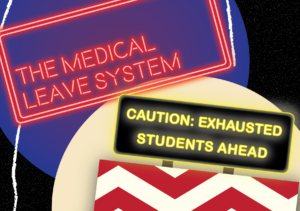After more than a year without a director of Georgetown’s Counseling and Psychiatric Services (CAPS), Dr. Durriya Meer began in the role on Jan. 24. With experience at Johns Hopkins University and the University of Michigan, Meer looks forward to continuing her work in the university environment and hopes to take the center in a new direction.
“There is an energy and vibrancy to the setting that is hard to find in private practice,” Meer wrote in an email to the Voice. “Moreover, at a university setting, there are colleagues and connections from different spheres and backgrounds that make the work exciting and open up new horizons.”
Meer joins CAPS at a time when students and university counseling centers are under skyrocketing pressures, both due to a longer-term trend in declining mental health and the added crisis of living through the COVID-19 pandemic. “University counseling centers across the nation are seeing unprecedented demand and strained resources, yet I have seen therapists go above and beyond,” Meer wrote. She emphasized the toll recent events have taken on clinicians themselves, writing, “Staff have been impacted by the pandemic themselves (for instance, some international staff have not seen family for 2+ years) yet, we show up to the best of our ability in service to our students.”
CAPS at Georgetown, while subject to many of the same challenges facing similar services at universities across the country, also suffers from a lack of community trust and consistent reports of extremely long wait times for counseling appointments. During the period of virtual instruction, the university launched an online counseling service, HoyaWell, which met a mixed reception. CAPS clinicians also faced difficulties due to state-by-state licensing requirements, which affected the center’s ability to reach both domestic and international students. These documented issues form the backdrop for Meer’s first semester in the leadership position.
Meer is under no delusion about the task ahead. “That is one of the reasons I was hired—in conjunction with CAPS staff and university leadership, to improve the care model so that students can access our services in a timely manner,” she wrote. The university is also continuing to offer HoyaWell services alongside in-person consultation in an effort to improve access to help.
Part of improving the care model has been hiring more clinicians of color. The student advocacy around a more diverse counseling staff goes back to Black Survivors Coalition demands in the spring of 202o. Earlier this academic year, CAPS hired four new staff members to supplement the effort.
“It helps to normalize the process of seeking help because students can visualize themselves sitting in front of someone who at least to some degree, represents their experience,” Meer wrote of the importance of a diverse CAPS staff. “I want CAPS to be a welcoming space for each and every student. I realize how lofty that sounds, but I believe in striving for it.”
Changing the culture around seeking help for mental illness begins with community suggestions, Meer believes. “One of my most important goals is to connect with different student groups. I want to hear from them what their experience with CAPS has been,” she wrote. By speaking with students and adjusting to her role in the university and student affairs structure, Meer hopes to bridge the experiences of various community stakeholders. “I truly believe in the power of open communication and collaboration across the university rather than reinventing the wheel in our efforts to improve student wellbeing.”
Students who are spending their first academic year on campus have not had much time to build a relationship with CAPS; others may be put off by negative encounters or community perceptions of seeking counseling. Whatever the root cause for students not seeking out CAPS services, Meer hopes the center will be able to turn over a new leaf.
“Paradoxically, rebuilding trust requires trusting again and I am aware that it is a risk,” she wrote. “I can speak on behalf of CAPS staff that we are truly and sincerely invested in the rebuilding process.”






